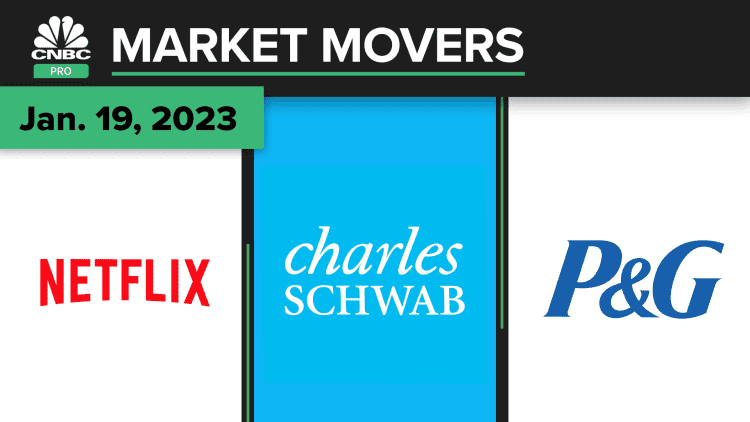
Stocks fell on Thursday as investors grew increasingly concerned that the Federal Reserve will continue to raise interest rates despite signs of slowing inflation.
The Dow Jones Industrial Average lost 252.40 points, or 0.76%, to 33,044.56, marking its third consecutive day, giving up gains from the new year’s rally. The 30-share index is now down 0.31% in 2023.
Meanwhile, the S&P 500 fell 0.76% to 3898.85, and the Nasdaq Composite fell 0.96% to end the session at 10852.27. Both indicators remain positive for this year.
All major averages are on pace for the first negative week in three. The Dow Jones is down 3.67% and is on pace to post its worst weekly performance since September. The S&P and Nasdaq both lost more than 2% on a weekly basis.
“After the market has practically shepherded the near-term fair value estimate for SPX on the day [4,014 both Tuesday and Wednesday] Stocks fell and acted like they needed a break, said Christopher Harvey, head of equity strategy at Wells Fargo Securities. “The factors driving the sharp year-to-date rally (shorting, risk bids, lower returns) seem to be hitting their limits in the near term..This will likely cause the market to trade from one side to the other in the short term.”
Stocks extended their decline on Thursday after initial filings for unemployment insurance fell to their lowest level since September reported the Ministry of Laborindicating to investors that the labor market is resilient amid a slowing economy.
“Despite all the post-pandemic layoffs, the job market is still hot,” said Ed Moya, senior market analyst at currency and trading data firm Oanda. “The labor market needs to collapse to allow the Fed to comfortably keep rates on hold.”
Claims totaled 190,000 seasonally adjusted for the week ended January 14, a decrease of 15,000 from the prior period. Economists surveyed by Dow Jones were looking for 215,000.
Investors analyzed other recent economic data and Federal Reserve statements for clues about how interest rates might rise. But while the latest numbers point to declining inflation, JPMorgan Chase CEO Jamie Dimon thinks rates will exceed 5%.
“I think there’s a lot of underlying inflation out there, and it’s not going away that quickly,” Dimon told CNBC’s “Squawk Box” program from the World Economic Forum in Davos, Switzerland.
Elsewhere, investors are watching key quarterly reports to see if there is a slump in earnings. Netflix will report earnings after the bell.
Lea la cobertura del mercado de hoy en español aquí.
Correction: Initial filings for unemployment insurance fell to their lowest level since September. An earlier version of this story misstated the month.

“Beer aficionado. Gamer. Alcohol fanatic. Evil food trailblazer. Avid bacon maven.”
